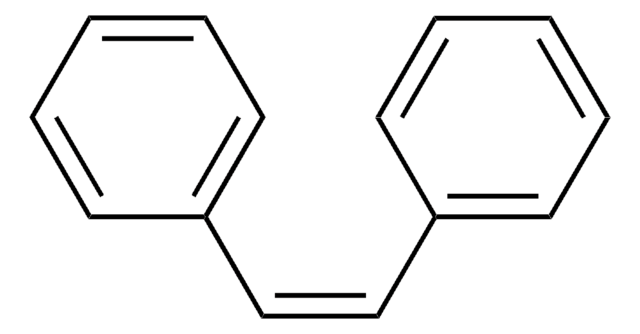380946
Naphtho[2,3-a]pyrene
technical grade
Synonym(s):
Naphtho[2,1,8-qra]naphthacene
About This Item
Recommended Products
grade
technical grade
mp
272-273 °C (lit.)
SMILES string
c1ccc2cc3c(cc2c1)cc4ccc5cccc6ccc3c4c56
InChI
1S/C24H14/c1-2-5-18-14-22-20(12-17(18)4-1)13-19-9-8-15-6-3-7-16-10-11-21(22)24(19)23(15)16/h1-14H
InChI key
AXSJLZJXXUBRBS-UHFFFAOYSA-N
General description
Application
- As test compound for the simultaneous mass spectrometric analysis of nonpolar and polar analytes by heat-assisted laser ablation electrospray ionization (HA-LAESI) method.
- As donor material in the fabrication of organic solar cells (OSCs).
- As blue and green emitting material in the fabrication of organic light-emitting diodes (OLEDs).
- As charge transport channel in the fabrication of organic thin-film transistors (OTFTs).
Signal Word
Warning
Hazard Statements
Precautionary Statements
Hazard Classifications
Acute Tox. 4 Dermal - Acute Tox. 4 Inhalation - Acute Tox. 4 Oral
Storage Class Code
11 - Combustible Solids
WGK
WGK 3
Flash Point(F)
Not applicable
Flash Point(C)
Not applicable
Personal Protective Equipment
Regulatory Listings
Regulatory Listings are mainly provided for chemical products. Only limited information can be provided here for non-chemical products. No entry means none of the components are listed. It is the user’s obligation to ensure the safe and legal use of the product.
JAN Code
380946-VAR:
380946-100MG:
380946-500MG:
380946-BULK:
Certificates of Analysis (COA)
Search for Certificates of Analysis (COA) by entering the products Lot/Batch Number. Lot and Batch Numbers can be found on a product’s label following the words ‘Lot’ or ‘Batch’.
Already Own This Product?
Find documentation for the products that you have recently purchased in the Document Library.
Our team of scientists has experience in all areas of research including Life Science, Material Science, Chemical Synthesis, Chromatography, Analytical and many others.
Contact Technical Service







![Benz[b]anthracene 98%](/deepweb/assets/sigmaaldrich/product/structures/197/885/3a015625-5e09-4f15-8b17-4cc285304fc7/640/3a015625-5e09-4f15-8b17-4cc285304fc7.png)
